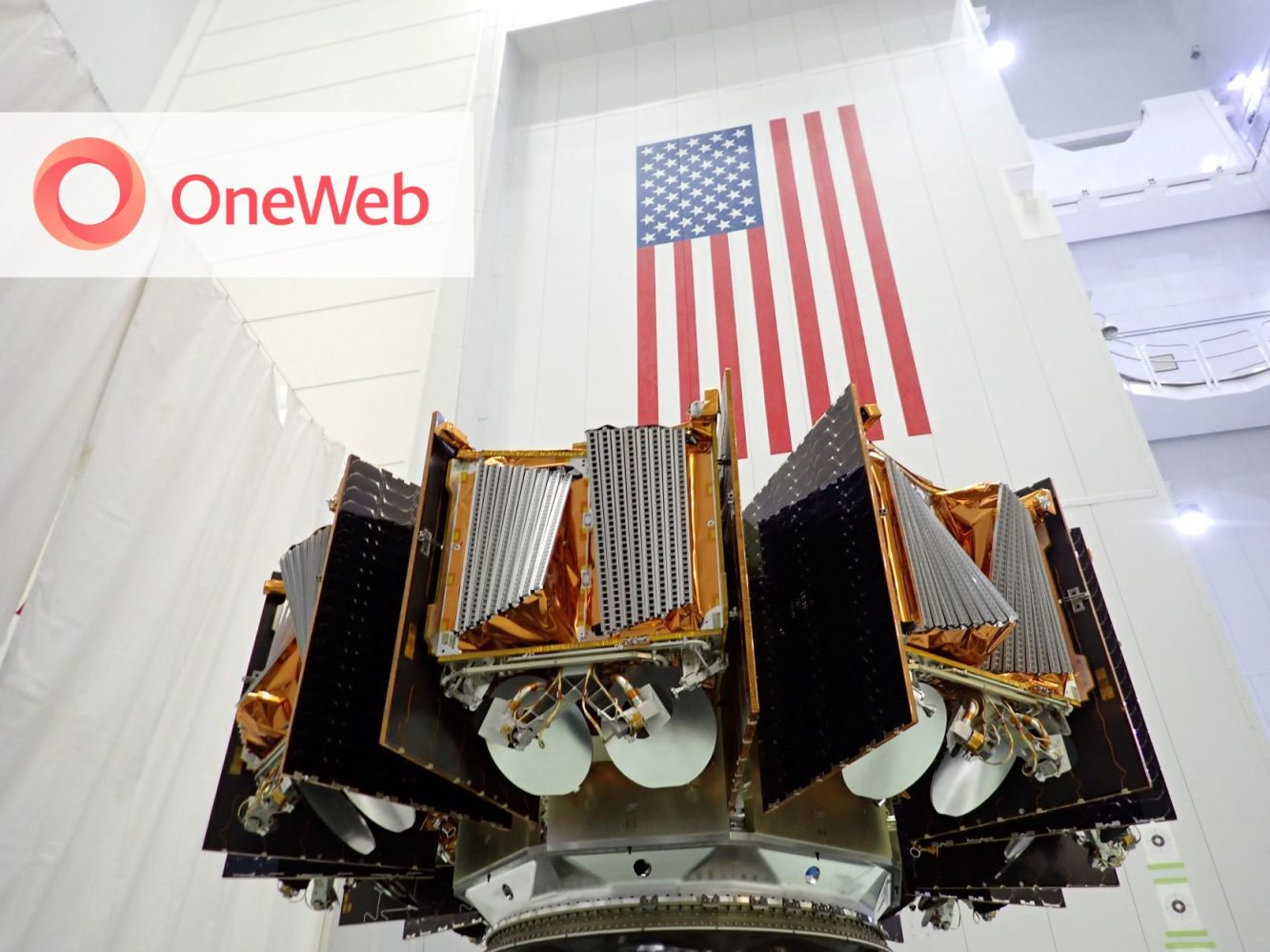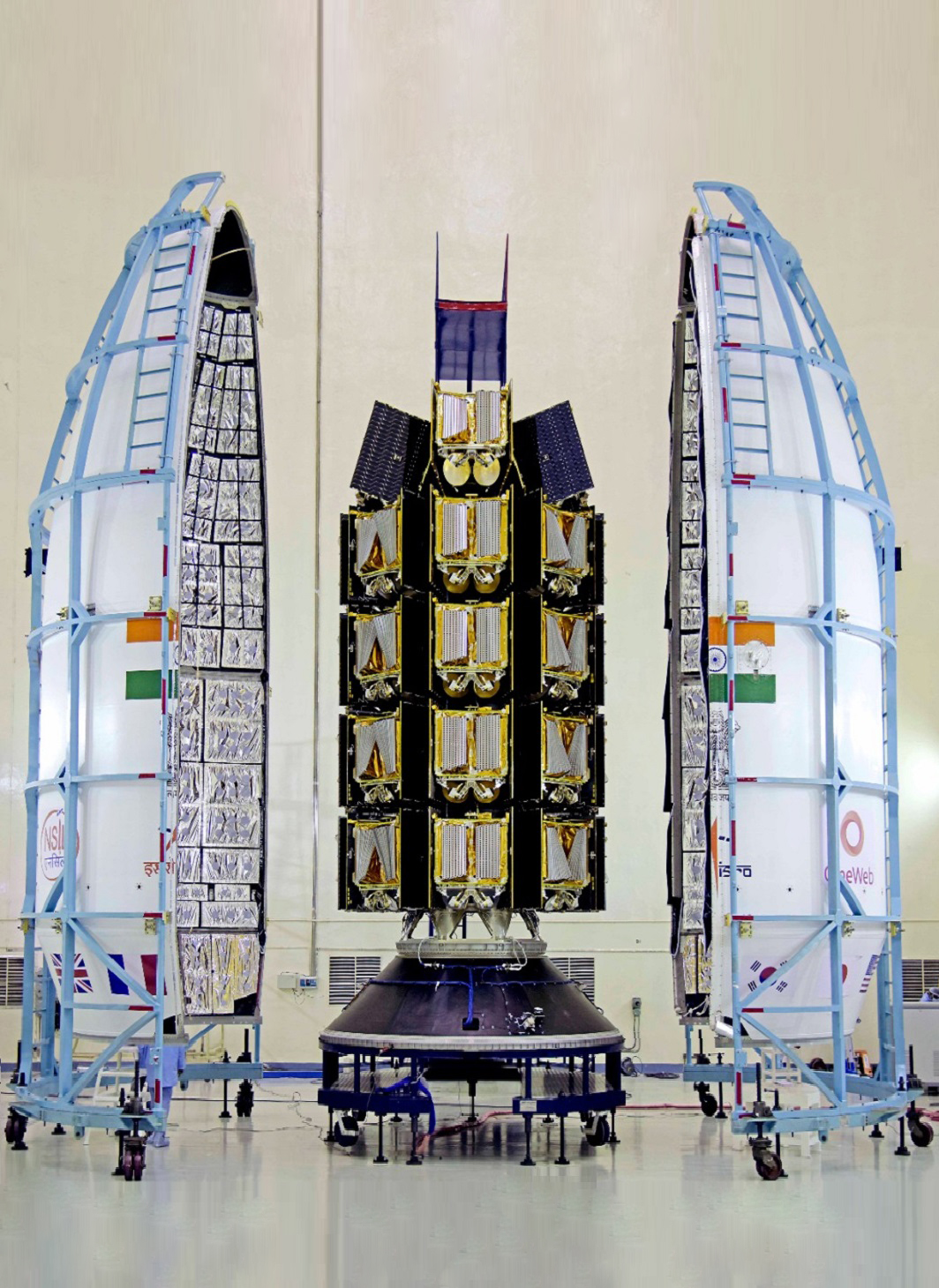
OneWeb is nearing the completion of its broadband internet constellation, a project that’s overcome a number of setbacks over the years, including a global pandemic and Europe’s largest conflict since World War II.
The company’s most recent batch launched atop a SpaceX Falcon 9 rocket on March 9, 2023. A final dedicated launch from India is expected within the next week. However, the original plan was to fly all of the constellation’s satellites atop Russia’s Soyuz rocket.
That was before Russia’s war in Ukraine, which resulted in the suspension of all Soyuz launches for Western customers. That included OneWeb, which now has 36 spacecraft worth an estimated $50 million dollars stuck at Russia’s Baikonur Cosmodrome launch site with no clear resolution for getting the satellites back.
“I spend no time thinking about it. We’ve completely moved on,” said Neil Masterson, CEO of OneWeb, in a March 15 Reuters article.”There is value getting them back, but I can tell you that I’m not getting them back any time soon.”
Masterson said in the article that the company is deferring any future retrieval efforts to government authorities. “The bigger issue for us was not so much the satellites, it was securing the launches,” Masters said.
In March of 2020, OneWeb filed for bankruptcy. The company said the coronavirus pandemic impacted its ability to raise capital during the spring of 2020, prompting a reorganization bankruptcy.
By July of 2020, it was announced that a consortium of the government of the United Kingdom and Bharti Global Limited had committed to purchase the company and fully fund the restart of its business operations.
Before Russia’s war in Ukraine, OneWeb utilized 13 of Russia’s Soyuz rockets to fly its satellites between 2019 and 2022 — some from the Guiana Space Center in Kourou, French Guiana, and others from Baikonur Cosmodrome in Kazakhstan. More than 400 spacecraft were launched into the constellation during those missions.

When the war started in February 2022, there was another set of 36 OneWeb satellites mounted and ready to launch from Baikonur Cosmodrome on March 4, 2022. However, Russia’s space chief at the time had requested the company guarantee the satellites would not be used against Russia, with further demands that the United Kingdom sell its interest in OneWeb.
Ultimately, the satellites were not launched, and are still being held in Kazakhstan. The continued conflict between Russia and Ukraine, along with sanctions against Russia, sent OneWeb looking elsewhere to launch.
After negotiations, it achieved an agreement with the Indian Space Research Organization and SpaceX. Two batches would launch atop India’s LVM-3 rocket while three batches would be atop SpaceX’s Falcon 9 rocket. A fourth Falcon 9 is expected to be used to send satellite spares into orbit.
The final dedicated launch, currently set for March 26 in India, signals the last major OneWeb satellite deployment before starting global service for government and business customers alike.
There are currently 582 active OneWeb satellites orbiting in low Earth orbit. OneWeb planned for 588 satellites, not including spares, in order to provide global broadband internet coverage. The launch from India is expected to add 36 additional spacecraft to the constellation.
A fourth Falcon 9 launch is expected to send as many as 15 OneWeb satellites (as well as a second generation test satellite) alongside several Iridium Next spacecraft as early as May 2023.
FTC: We use income earning auto affiliate links. More.



Comments